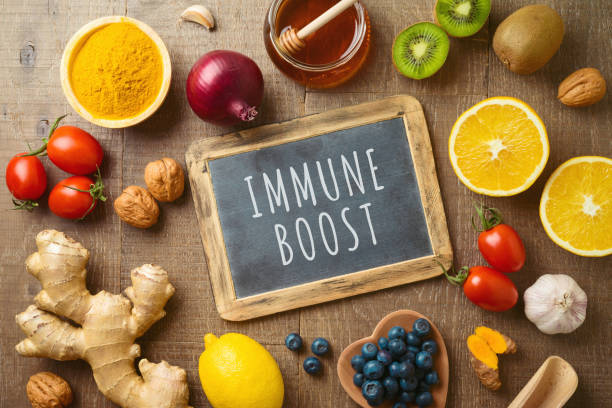The immune system is a highly effective and complex defense mechanism, which is spread throughout the body. Whether the immune system is too high or too low, it indirectly affects our body. In addition to improving and strengthening our resistance through our daily routines, many of us also take nutrients that are essential to our body through health food or diet, such as the following key nutrients that are common to our daily life.
Vitamin C : It is a powerful antioxidant that neutralizes free radicals and reduces oxidative damage. Moreover, it also promotes the production of antibodies, which are part of the immune system that recognizes and eliminates pathogens that invade the body. It is found in fruits such as oranges, kiwis, lemons and tomatoes.
Vitamin D : It strengthens the immune cells against microbial infections. It helps activate specific immune cells, such as macrophages and natural killer cells, which can fight against pathogens and prevent respiratory infections. In addition to eating foods rich in vitamin D, such as dried mushrooms, egg yolks, halibut, and mackerel, getting more sunlight can also help promote the production of vitamin D in the body.
Proteins : Proteins are the main raw materials for the body to synthesize white blood cells and antibodies. Antibodies are made of proteins called immunoglobulins, which enable the immune system to produce specific antibodies against various pathogens. In addition, proteins play a role in intercellular signaling and receptor binding, which helps to coordinate the activities of immune cells. Since proteins play a vital role in the composition of the immune system, they are also essential for our daily energy.
Probiotics : The intestinal tract is the largest immune system in the human body. In order to maintain the balance of flora in the intestinal tract and increase the production of good bacteria, probiotics are often used as a key nutrient in health food. The mucous membranes in the intestines are an important part of the immune system. Probiotics can prevent bacteria and viruses from entering the body, which helps strengthen the mucous membrane’s immune function, regulate inflammation, and improve its ability to fight against external threats. It is important to note that different probiotic strains may have different immune-modulating effects and their effects may vary from case to case. Therefore, in choosing probiotics, it is best to seek advice from your doctor or professional healthcare provider to ensure that the right strain and dosage are selected.
Zinc : It promotes the proliferation and activation of immune cells such as white blood cells, T-cells, B-cells and macrophages. In the human body, zinc usually plays the role of coenzyme, which influences the development and function of immune cells and helps the immune system to function in a coordinated manner. It also helps to control the growth and spread of pathogens, thus helping the immune system to fight infections.
VAP : VAP is a small molecule found in nature, which is why we also call it Versatile Adhesion Polypeptides, and it is also found in colostrum and Chinese medicine. VAP proactively binds to variable viruses and bacteria in the environment and rapidly activates B and T cells beneath the inner layer of M cells in the intestinal mucosa to label the virus. The largest immune system in the human body is the mucous membranes, mainly the respiratory mucous membranes and digestive mucous membranes, and VAP can effectively relieve any discomfort, inflammation, and allergic reactions related to the mucous membranes, and at the same time, it can also alleviate the discomfort and side effects caused by the administration of vaccines, so VAP can be said to be an indispensable key nutrient nowadays.

